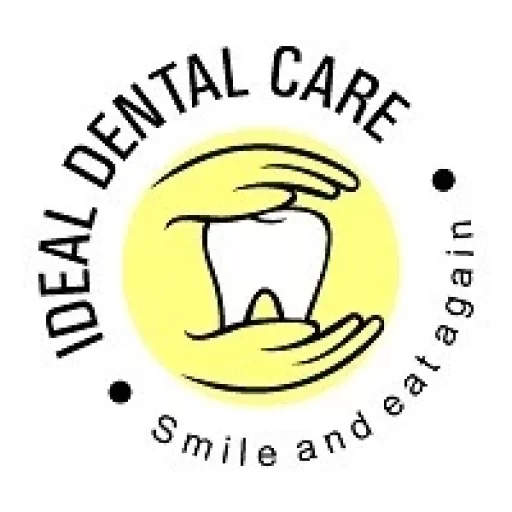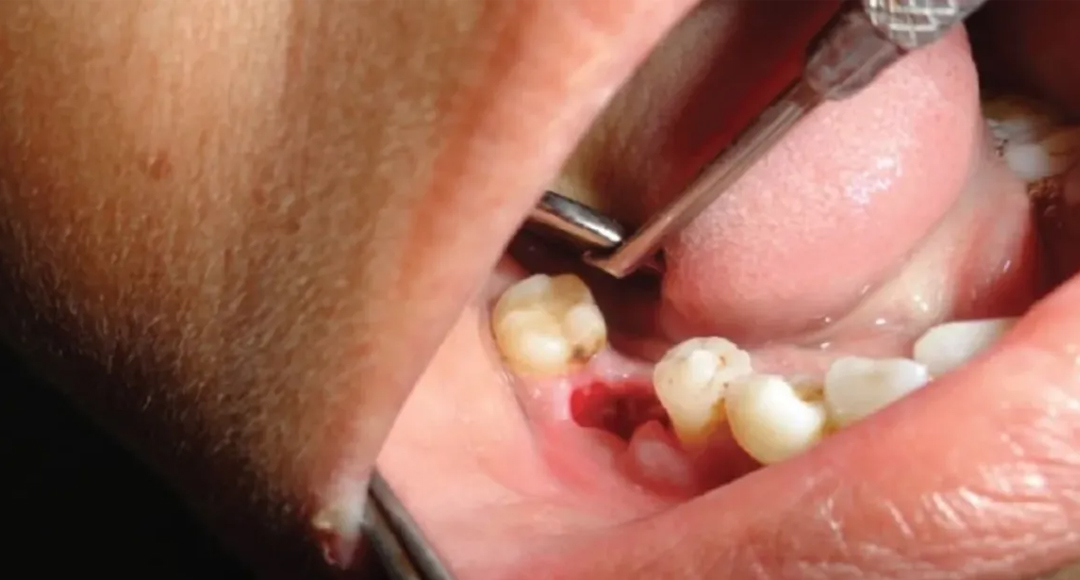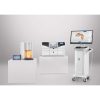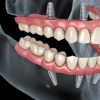What is Tooth Extraction and what to expect?
There are instances when adults need to get teeth extracted. Even though permanent teeth are supposed to last a lifetime, tooth extraction may be necessary for various situations. A persistent cause is a tooth irreparably destroyed by trauma or decay. This blog talks about what tooth extractions are, their procedure, what to expect during the treatment, and much more.
What is tooth extraction?
A dental surgery called a tooth extraction involves entirely removing your tooth from its socket. Removal is prescribed if your tooth has suffered severe damage that cannot be repaired. When feasible, healthcare professionals prefer to preserve natural teeth. Yet, there are situations when additional restorative measures, like dental crowns or fillings, are required. Having your teeth extracted may be advised by your Dentist if you:
- Severe tooth decay (cavities).
- A fractured tooth.
- An impacted tooth.
- Severe gum disease.
- Tooth luxation or other dental injuries.
Why are teeth removed?
Although many adolescents and some adults have their wisdom teeth removed, there are other situations in which adult tooth extraction is recommended.
Tooth extractions may be necessary due to severe dental decay or infections.. One or two teeth may need to be extracted to make way for the other teeth as they move into position for those who obtain braces. Moreover, compromised teeth may need to be removed to maintain oral health for chemotherapy patients.
A tooth extraction is a short outpatient surgery done by a dentist or oral surgeon under local, general, intravenous, or combination anesthesias. An easy extraction is the removal of visible teeth. Broken, subsurface, or impacted teeth call for more extensive surgery.
What happens before the tooth extraction?
First, Your Dentist will examine the affected tooth and the gums around it. Also, your Dentist will take dental X-rays to assess the severity of the bone level and the damage. Tell your Dentist about any over-the-counter remedies, prescription medications, and vitamins you take. Your Dentist will discuss alternatives for treatment and sedation with you once all the necessary data is acquired.
Sedation is a fantastic alternative for those who experience dental anxiety or want to feel more at ease during the treatment. Some medical professionals administer sedation during dental procedures like tooth extractions. Here are some sedatives used in dentistry:
- Nitrogen Dioxide: Nitrous oxide, or “laughing gas,” is a gas you breathe in through a mask or nosepiece. It’s a wonderful choice for those who require only mild sedation and allows the users to travel alone to and from their appointments.
- Oral Sedation: This kind of sedation is administered orally, typically as pills, about an hour before your dental appointment. Triazolam, diazepam, midazolam, and lorazepam are common drugs used for sedation. The dosage is adjusted per your unique demands; however, the patient will require transportation from a friend or relative to and from the appointment.
- Intravenous (IV) sedation: A dentist recommends this for those enduring protracted operations or those with severe dental anxiety. An IV line administers sedatives and painkillers straight to your bloodstream, including meperidine and midazolam. The highest level of sedation attainable in a dentist’s clinic is IV sedation, and patients have to arrange for a driver on the day of the treatment.
In some cases, in a hospital setting, general anaesthesia may be advised by your dental professional. Usually, complicated situations involving reconstructive jaw surgery or facial reconstruction are saved for this approach.
How to prepare for a tooth extraction?
Your Dentist will examine your tooth by taking an X-ray before scheduling the procedure. Tell your Dentist about all prescription and over-the-counter medications you take, dietary supplements, and vitamins.
If you are soon receiving intravenous treatment for another medical condition using a medication known as a bisphosphonate, let your Dentist know. If so, the extraction should be performed before the medication therapy to prevent jaw osteonecrosis (bone death). Moreover, If you have any of the following conditions, let your Dentist know:
- Congenital Heart Defect
- Diabetes
- Liver Disease
- Thyroid Disease
- Renal Disease
- Hypertension
- An Artificial Joint
- Damaged Heart Valves
- Adrenal Disease
- An Impaired Immune System
- History of Bacterial Endocarditis
Before tooth extraction, your Dentist might want to ensure all symptoms are controlled or cured. You have an infection, a weakened immune system, or a specific medical condition, and the procedure is anticipated to take a lengthy time. If you have an infection, you may be given medicines the days before the procedure.
Here are some points to remember to ensure quality treatment on the day of the tooth extraction.
- Wear a short-sleeved shirt or loose-fitting clothing, and refrain from eating or drinking for six to eight hours before your visit if you receive IV anaesthetic.
- Don’t smoke before your surgery.
- If you have a cold, notify your Dentist; you may need to postpone the extraction.
- Inform your Dentist if you experienced nausea or vomiting the night before since this may necessitate alternate anaesthetic or rescheduling.
- If you’re having general anaesthesia, have someone drive you home.
What is the procedure for a tooth extraction?
Whether your tooth is visible or affected, your extraction will be either simple or surgical.
Simple Extraction
A local anaesthetic will be injected into you, numbing the area around your teeth so that the process will only cause you to feel pressure rather than pain after loosening the tooth with an elevator and extracting it with forceps, the Dentist.
Surgical Extraction
The regular Dentist or oral surgeon will make a small incision into your gum. Before they can extract your tooth, they might need to cut it, remove the bone surrounding it, or both.
What are the risks of a tooth extraction?
Certain risks are associated with tooth extraction, but if your Dentist recommends treatment, the advantages will likely outweigh the slight possibility of difficulties.
The socket, or hole in the bone where the tooth was taken, usually produces a blood clot after tooth extraction. The term “dry socket” refers to a situation where the blood clot either does not form or dislodges, exposing the bone inside the socket.
If this occurs, the Dentist will cover the region with a sedative dressing for a few days to protect it. A fresh clot will form throughout this period. Other risks of tooth extraction include:
- Bleeding that persists for more than 12 hours
- High fever and chills that indicate an infection
- Dizziness or Vomiting
- Cough
- Shortness of Breath
- Chest Pain
- Edema
- Redness at the surgery site
What is the recovery period from a tooth extraction?
Tooth extraction recovery usually takes a few days. Here are some measures you can take that will help you recover smoothly.
- You may experience swelling on your cheek post-surgery; place an ice pack on it to minimize swelling. Each time, apply the ice pack for 10 minutes.
- Your Dentist will apply a gauze pad to the operated area, and you must bite down on the gauze pad to stop bleeding and avoid clot formation. Keep the gauze in place for three to four hours or until the blood has completely saturated the pad.
- Take all medicines, including over-the-counter pain relievers prescribed by the Dentist.
- Give your body enough time to heal before returning to your daily routine; rest easy and rest for the first 24 hours.
- Avoid using a straw for the first 24 hours.
- Avoid smoking.
- Do not rinse for 24 hours post-surgery, and only gently spit.
- When you are lying down, raise your head using pillows.
- Floss between your teeth like usual, but avoid the surgery area.
- Eat soft foods the day after the surgery, such as yogurt, pudding, daal, and applesauce.
- Mix Eight ounces of warm water with a half-teaspoon of salt to help rinse your mouth after 24 hours.
- Gradually reintroduce other foods as you heal.
Schedule an appointment with your Dentist immediately if you have discomfort that doesn’t go away after several days or symptoms of an infection, such as fever, pain, pus, or drainage from the incision.
What to expect during tooth extraction?
Simple extraction
Your dentist or oral surgeon will probably use a device known as an elevator to loosen the tooth in the gum after delivering the local anaesthesia. They’ll next grasp the tooth using forceps and remove it from the gum. Although there may be pressure; however, you shouldn’t feel any pain. Your dentist will give you more local anaesthesia to numb the region if you let them know you are in pain.
Surgical extraction
The oral surgeon or dentist will make an incision in your gum after administering the local anesthetic. They will remove the bone if it prevents them from reaching the tooth’s base. The tooth will then be extracted, possibly in parts, for easy removal.
Following the actual extraction, your dentist or oral surgeon will clean the area and may use sutures (stitches) to close the wound for both primary and surgical extractions.
Finally, gauze is typically applied to the wound to stop bleeding and avoid blood clot formation. You will be instructed to bite on this gauze for 20 to 30 minutes post-surgery.
Pain following extraction
You’ll likely have tenderness and discomfort in the operated area for a few days; however, everyone heals at a different rate. You may also feel tightness and stiffness in your jaw and joint because you kept your mouth open throughout the treatment. On day 3, you may have a dry socket if the discomfort persists. When the blood clot in the extraction socket fails to form or becomes loose, it is known as a “dry socket,” and the bone that lines the socket walls becomes visible. It is normal to get a dry socket post-surgery, for which your dentist applies a medical gel to treat it.
Take Away
Although tooth extraction involves discomfort, your dentist or oral surgeon can make the procedure as painless as possible by using local anesthetic and sedative drugs to help you manage your postoperative pain, they may also suggest OTC or prescription medicine.
Although everyone recovers from tooth extraction at a different time, most people experience localized soreness that subsides within a few days.
Your best chance for achieving ideal dental health is to have your affected tooth extracted. Tooth Extraction significantly reduces dangerous germs that might damage your gums and teeth. If not repaired, a rotting or damaged tooth can ruin your smile and lead to other issues. Moreover, an extraction can help relieve dental discomfort almost immediately if your tooth is seriously cracked or infected.
Get the best tooth extraction treatment at Ideal Dental Care, Indore. Our experienced dentist team has derived ways to deliver 100% painless procedures at affordable prices. Book your appointment today!




